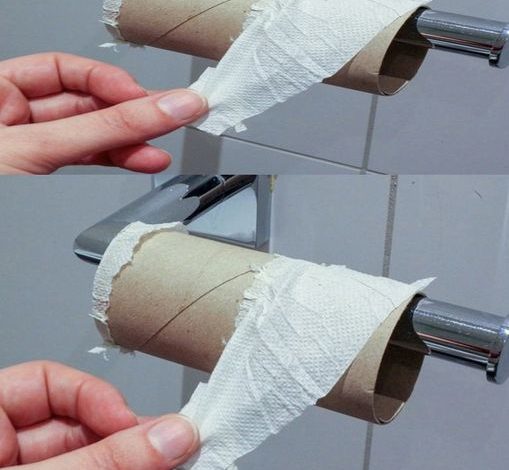Is toilet paper coming to an end? It may soon take the place of our regular rolls…

The End of the Roll? Why Toilet Paper Could Soon Vanish from Store Shelves
Toilet paper is a daily necessity for millions, but recent concerns about its environmental and health impacts have sparked conversations about its potential disappearance from store shelves. Could we be approaching the end of toilet paper as we know it?
The Environmental Impact of Toilet Paper
Toilet paper, first invented by Joseph Gayetty in the mid-19th century, quickly became a global essential. However, its production carries a heavy environmental toll. Millions of trees are cut down each year to meet global demand, contributing to deforestation and pollution. The extensive water and energy required to manufacture and process toilet paper further exacerbate its environmental footprint. As the world becomes more conscious of these impacts, the pressure to find sustainable alternatives is growing.
Health Hazards Hidden in Toilet Paper
Health concerns have also come to light. Research, such as a recent study from the University of Florida, revealed that some toilet paper contains harmful chemicals like BPA and chlorine, which have been linked to serious health risks including reproductive issues and certain cancers. France, in particular, has raised alarm over the presence of these toxins in everyday products, with contaminated toilet paper being a major concern.
Greener, Cleaner Alternatives
In response to these issues, many people are seeking eco-friendly alternatives to toilet paper. Washing with soap and water, a practice common in many cultures, is considered both more hygienic and better for the environment. Bidets, long a fixture in Japanese bathrooms, are also gaining popularity worldwide. Modern bidets, equipped with water jets and drying features, provide an effective, eco-conscious solution to traditional toilet paper.
Enter Reusable Toilet Paper
Another emerging alternative is reusable toilet paper, made from washable materials like cotton. Though unconventional, these reusable options can be used, laundered, and reused, drastically reducing waste. While the idea might take some getting used to, reusable toilet paper offers a practical and sustainable solution that could significantly cut down on the environmental damage caused by disposable products.
Overcoming the Habitual Barrier
Switching from conventional toilet paper to greener alternatives is not without its challenges. For many, it’s a matter of overcoming long-standing habits and cultural norms. Educational campaigns that emphasize the hygiene and environmental benefits of alternatives like bidets and reusable toilet paper are crucial for driving widespread change. Making these options more accessible and affordable will also play a key role in adoption.
Financial Considerations of Going Green
The financial aspect of switching to sustainable alternatives is another factor to consider. While installing bidets or purchasing reusable toilet paper may come with an upfront cost, these investments can pay off over time by eliminating the need for regular toilet paper purchases. For both consumers and policymakers, balancing sustainability with economic practicality will be essential in making these changes viable.
Infrastructure and Public Facilities
Transitioning to greener solutions requires more than just individual choices. Public spaces, older buildings, and infrastructure will need to be updated to accommodate alternatives like bidets. These upgrades can be costly, and careful planning is necessary to ensure they are accessible and well-maintained, particularly in high-traffic areas like public restrooms.
Government Support and Policy Changes
Government intervention can accelerate the shift toward sustainable toilet habits. By offering tax incentives, subsidies, or introducing regulations that encourage the use of bidets and reusable materials, policymakers can help reduce the economic barriers to change. These measures can also promote a broader cultural shift, driving large-scale adoption of greener bathroom practices.
A Cleaner, Healthier Future
As discussions about toilet paper alternatives grow, they’re becoming part of a larger conversation about public health, environmental sustainability, and overall well-being. By exploring cleaner, greener options, we have the opportunity to reduce our environmental footprint while improving hygiene standards. The future of toilet paper is uncertain, but it’s clear that the shift towards more sustainable practices could lead to a cleaner and healthier world for everyone.